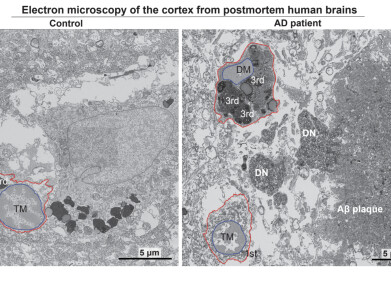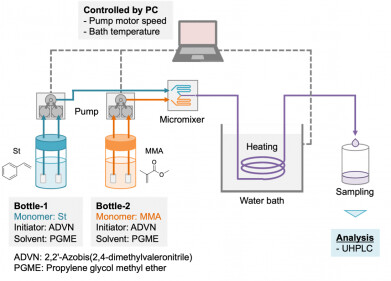-
.jpg) Sabine Lagger (Credit; :Michael Bernkopf/Vetmeduni )
Sabine Lagger (Credit; :Michael Bernkopf/Vetmeduni ) -
 Lukas Kenner (Credit: "MedUni Vienna/feelimage")
Lukas Kenner (Credit: "MedUni Vienna/feelimage")
Research News
Protein coding gene offers hope in slowing prostate cancer growth
Jun 07 2024
An international study has identified a protein that could slow tumour growth in prostate cancer, the second most common cause of cancer death. Led by Lukas Kenner (MedUni Vienna) and Sabine Lagger (Vetmeduni Vienna), the results provide a new starting point for the development of therapies.
While the complex molecular processes leading progression of prostate cancer have not yet been fully clarified by science, the protein known as JUN, (JUN Proto-Oncogene, AP-1 Transcription Factor Subunit) is being intensively researched as a possible driver of tumour growth.
"Numerous studies have shown that JUN is produced excessively in cancer. So a link has been established between tumour growth and high JUN levels," said Lukas Kenner (Clinical Institute of Laboratory Medicine at MedUni Vienna, Department of Laboratory Animal Pathology at Vetmeduni Vienna), explaining the background to the current study.
However the study has shown that the opposite is the case with prostate cancer: the research team's investigations using a mouse model and clinical samples revealed that the progression of prostate cancer is not accelerated but slowed down when JUN is present in high levels. On the contrary, it was observed that the tumour grows faster when the protein is missing.
The fact that JUN plays an important role in the activation of genes and various processes such as cell growth was discovered back in the 1980s. "In our investigations, we found that JUN is significantly involved in the regulation of prostate cancer by influencing the body's immune response," said Sabine Lagger from the Department of Laboratory Animal Pathology at Vetmeduni Vienna, explaining the connections currently being researched. If the protein is missing, the recruitment of certain immune cells in the tumour's micro-environment is impaired, which leads to accelerated cancer growth. These results could explain why prostate cancer is less responsive to immune therapy and could help to understand how to reactivate local immune responses.
While early stage tumours remain localised in the prostate gland, where it is easier to treat its progression can becomes aggressive and can metastasise: "Our research suggests that activating JUN could potentially be a promising therapeutic option for slowing the progression of prostate cancer," summarised Lagger and Kenner ahead of further investigations to confirm the results.
The results were published in Molecular Cancer
More information online
Digital Edition
Lab Asia 31.6 Dec 2024
December 2024
Chromatography Articles - Sustainable chromatography: Embracing software for greener methods Mass Spectrometry & Spectroscopy Articles - Solving industry challenges for phosphorus containi...
View all digital editions
Events
Jan 22 2025 Tokyo, Japan
Jan 22 2025 Birmingham, UK
Jan 25 2025 San Diego, CA, USA
Jan 27 2025 Dubai, UAE
Jan 29 2025 Tokyo, Japan


















